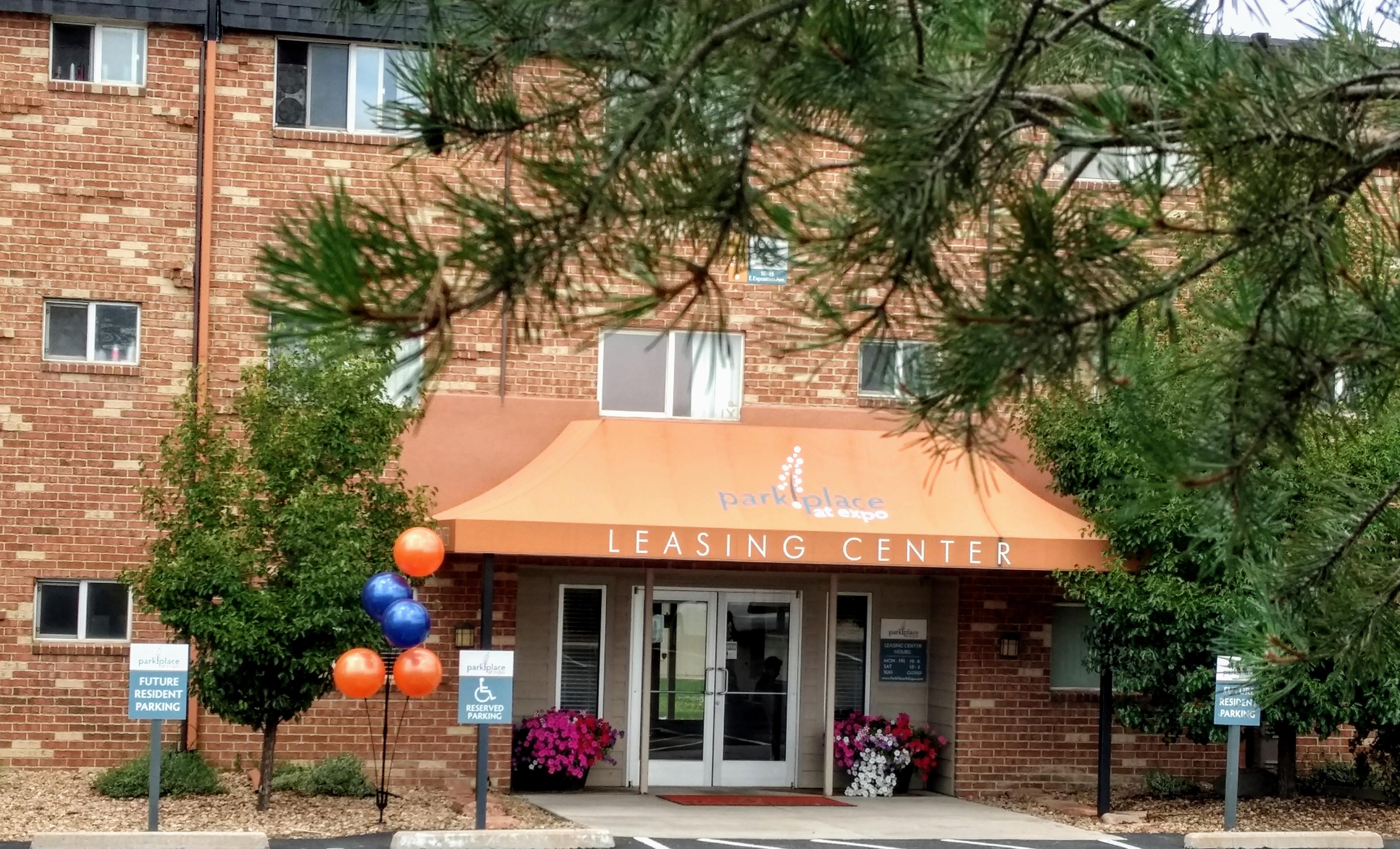A delivery driver fighting eviction in court says he's also fighting for tenants across Colorado.
"Somebody has to start saying something," Bobby Salandy told Denverite this week. "We are creating a society in which you've just got to put up with stuff. And it shouldn't be that way."
Salandy started speaking out about tenants' issues even before his legal battle over late fees with Echelon Property Group, which has dozens of apartment complexes, most in metro Denver. After a chance meeting with a lawyer led Salandy to 9to5 Colorado, he ended up testifying on behalf of a proposal that the working families advocacy group was championing. The proposal later became a law giving Colorado tenants 10 days -- instead of the previous three -- to stave off eviction proceedings by resolving a problem such as being behind on the rent.
Salandy, meanwhile, was finding it hard to keep up with the $924 a month he owed on an apartment at Park Place at Expo, an Echelon complex in Aurora not far from Denver's Fairmount Cemetery.
He doesn't remember the first time he was late.
According to the 37-page lease Salandy signed when he moved in last August, a late charge of $75 is due on the fourth day if the rent is not paid within three days of when it is due. Then daily fees of $10 are applied until the rent and all fees are paid. Salandy was also charged $20 in service fees each time he was notified that his rent was late.
Salandy kept falling behind, only to have the late fees make it even harder for him to make ends meet.
In 2015, 9to5 surveyed over 1,000 Colorado renters about the challenges of finding housing and then managing to keep it. Many cited high fees.
"We didn't realize how out-of-control it can be for folks," said Andrea Chiriboga-Flor, 9to5 Colorado's co-director.

Almost a quarter of Denver renter households are spending at least half their income on housing, leaving them vulnerable to unexpected costs such as a medical emergency -- or a late fee. According to a report released by the nonprofit Colorado Center on Law and Policy late last year, across the state one in four households -- 430,000 -- don't earn enough to cover housing and other basics. Denver was home to 16 percent of those struggling households.
Perhaps Salandy should give up an apartment he was finding difficult to afford -- even though it was the cheapest he'd been able to find. According to the Apartment Association of Metro Denver, average rents were $1,520 during the second quarter of 2019, a 2 percent increase from the same quarter last year.
Leaving before his lease expires in September would have meant walking away from a $600 security deposit -- money Salandy would need for a new place, if he could find one in his budget -- and facing a "lease break fee" of $1,848.
"I feel like all I do is work to pay bills," said Salandy, who is a budtender and drives meals to customers for a variety of foodservice apps. "I don't think I should have to work 50, 60 hours (a week) just to pay the bills. But if I just work 40, I'm going to be homeless."
In addition to delivering meals, Salandy occasionally drives people. He met attorney Jason Legg, who often consults with 9to5, as a rideshare customer. That meeting led to Salander's Capitol appearance. When Echelon began eviction proceedings against Salandy in May, Legg stepped in. According to Salandy's lease, tenants are charged $295 in "administrative fees and attorneys' fees" if eviction proceedings are begun.
Most tenants do not have a lawyer's help in eviction court.
Landlords almost always do and usually prevail. An eviction record can make it hard to get another apartment. Legg often tries to negotiate an agreement with landlords so that tenants can avoid an eviction order.
In Salandy's case, Legg and a colleague, Steven Woodrow, responded to the eviction proceedings Echelon had begun with a counter-suit on Salandy's behalf in Arapahoe County district court alleging that the company's late fees were "usurious and unconscionable."
"I just struggle to think what these fees are for," Legg told Denverite.
Deborah Wilson, a real estate lawyer who works closely with the Apartment Association of Metro Denver, a landlords trade group, said: "Late fees are charged, it's to incentivize a tenant to honor their obligations under the contract."
"I as a tenant have signed a lease when the late fee was $50 a day. And it made me pay on time," said Wilson, who is not involved in the Echelon-Salandy case.
She added the fees should not be punitive. Landlords can only estimate the costs they might face if a tenant does not pay on time, she said. Her own rule of thumb is that they should not be more than 20 percent of the rent.
Wilson said she has represented landlords attempting to collect unpaid rent and fees and knows judges can find fees excessive, but said fees of less than as $10 a day were unlikely to raise eyebrows.
Legg said he was not arguing that no late fees should be charged, but that they should cover real damages or costs, such as the impact a missed rental payment might have on a complex owner's ability to pay a mortgage or the administrative costs of pursuing and processing late rent. The fees should be reasonable, Legg said.
"This is well beyond that," he said of the provisions in Salandy's lease.
Chanele Richardson, Echelon's Greenwood Village-based regional manager, did not respond to requests for comment. Echelon is represented by Peter Muccio of Tschetter Hamrick Sulzer, a Denver law firm that represents landlords and describes itself on its website as "#1 in Colorado evictions." Muccio told Denverite he could not comment on a pending case.
In court documents, Echelon denies Salandy's characterization of its late fees and says he should not be able to pursue his counter-claim due in part to his own "failure to make timely payments as required by the lease."
Salandy acknowledged that he signed a lease that included terms he is now challenging. Given the difficulty of finding affordable housing in the Denver area, he said, "where else could I have gone?"
"I had no choice but to sign this paper."
Chiriboga-Flor of 9to5 said low-income tenants have little power to negotiate the terms of a lease given the realities of supply and demand. In a report released earlier this year, the National Low Income Housing Coalition said metro Denver had just 26 homes available for every 100 of the 80,368 poorest households.
"Tenants tend to be looked at as disposable," Chiriboga-Flor said. "It's, 'OK, if you don't like it, you can go.'"
"They're not really bluffing, either."
Echelon has told the court it wants to press ahead with eviction proceedings against Salandy. He has asked for the proceedings to be put on hold pending a decision in his counter-suit.
Salandy also has asked that other tenants in similar situations should be added to his counter-suit, making his litigation class-action. The Arapahoe court has yet to rule on the eviction or class-action request. Class action suits over late fees have been filed or attempted in California, Texas and elsewhere.
Attorney Legg said Salandy's lease appears to be a standard document that other Echelon tenants may have signed. Legg said a court victory could lead to the late-fee language in leases for 10,000 units -- the number is from Echelon's website -- being invalidated. It could also mean refunds of late fees collected from Salandy and an unknown number of other tenants.
Canvassers from 9to5 plan to talk to tenants at Park Place at Expo, where Salandy still lives, to see whether they want to join the suit. Chiriboga-Flor of 9to5 said tenants at other Echelon properties might also be approached.
The ramifications could be even more widespread.
The case "puts every landlord in the state on notice that they need to trim these (late fees) down," Legg said.
The eviction law Salandy and 9to5 supported was one of several passed this legislative session that were seen as boosting tenant rights. Another allows landlords to charge prospective tenants rental application fees only if they cover the costs of processing the application and no more. Chiriboga-Flor said the next session could see an attempt to cap late fees.












